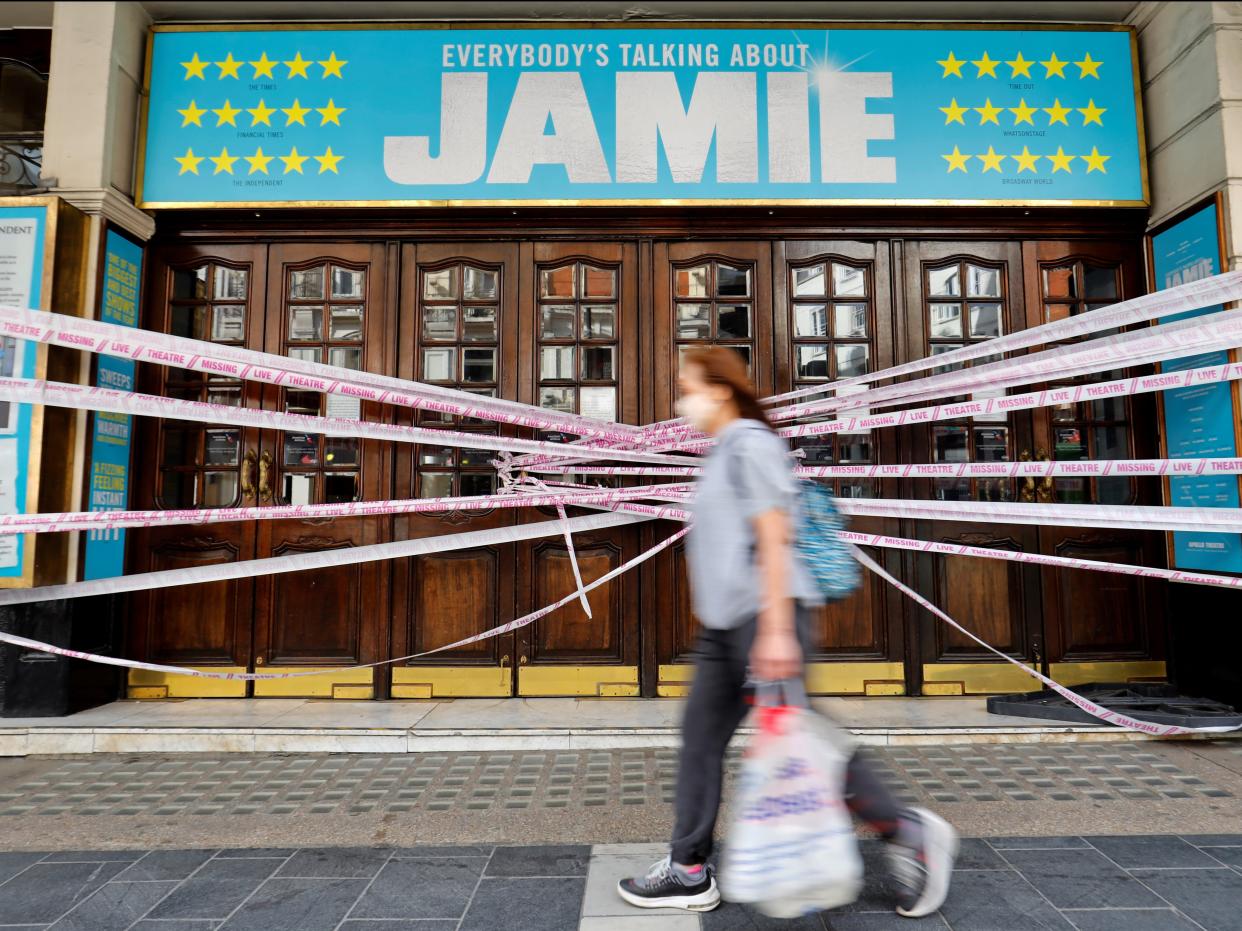Diversity in the arts was improving – and then Covid happened

As we emerge from a long, bleak year of lockdowns, the creative industries should be where we go to to seek comfort and enjoyment. But the theatres, film sets, galleries and venues that were forced to close face an uncertain future. The sector has been among the worst-hit during the pandemic, losing up to 90 per cent of revenue due to Covid. This is exacerbated as the many benefits of the European Union to the sector have been replaced by layers of red tape and uncertainty.
It’s also had a detrimental impact on efforts to improve diversity in the creative industries – a sector which has up until recently been hard to break into without the right connections and finances to afford free or more often low-paid internships.
Pre-pandemic figures show a lack of diversity across gender, race, disability, sexuality, age, and socioeconomic background. Specific initiatives to widen opportunities had begun – slowly, incrementally – to improve things. The pandemic has halted such progress. We lacked diversity to begin with, and Covid has made this much worse.
Organisations struggling financially after long closures no longer provide the schemes that had been redressing a lack of creative sector diversity. Pre-Covid, 90 per cent of trainees moved on to full-time work after placements. Since Covid, 85 per cent of trainees are unsure they’ll be employed after an internship or know they won’t be.
A report from the Creative Industries Policy and Evidence Centre (PEC) found risk averse producers favour bankable artists with an existing following, reducing opportunities for emerging artists. The pandemic has delayed gender and ethnicity pay-gap reporting. Creatives with caring responsibilities have been unable to work. Those in the least privileged positions, for example front of house roles, are often the first to be made redundant – a devastating setback for those who most struggled to get into the sector.
This is before we even consider the fact that creatives from Black and South Asian backgrounds, disabled and older creatives are at greater medical risk from the actual virus and more likely to have to shield regardless of whether they’ll receive furlough.
Shadow chancellor Anneliese Dodds urged the government to address an inadequate furlough scheme that left the sector at huge risk of a skills exodus. Bectu found only 50 per cent of creative workers were able to access government financial support.
The sector is in crisis, both economic, and in its narrowing pool of talent. We need the creative industries and we need them populated with diverse voices, stories and perspectives. That’s where the richness lies. Now, as we emerge from lockdown, this moment could not be more pivotal for the creative industries.
Universities and researchers have been in the spotlight due to their role in creating life-saving vaccines. They are also important spaces of freedom of expression and creativity. To mark this pivotal moment, the Creative Industries Research and Innovation Network at Oxford Brookes is hosting a month-long festival of the creative industries.
The first week is dedicated to these questions of what the future looks like and how we rebuild. It will also provide a dedicated platform for diverse creative voices to discuss topics including queer creativity, ‘crip’ humour, and diversity in blockbuster movies. Moreover, it’s a space for creatives to share their work without the burden of representing any particular community.
So how do we rebuild better? Mentoring schemes are one way to nurture talent who lack the guidance and knowledge of unwritten rules that come from being well-connected. Charters like PRS Foundation’s Keychange, which require pledges to hire 50:50 gender ratios, have been another tool for material change.
As we rebuild, we must broaden. As we heal after surviving the year, rich, diverse, collective creativity and freedom of expression will help us really live.
Hannah Yelin is a senior lecturer in Media and Culture at Oxford Brookes University and network lead for the Creative Industries Network. Oxford Brookes University’s Industries Festival runs from 4 to 27 May
Read More
By owning a pet, you are doing more damage to the environment than you might realise
Bottom trawling must be banned immediately – it’s destroying our oceans
Keir Starmer’s lack of vision means Labour is doomed to suffer more losses in the local elections

